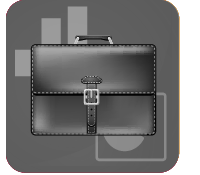Object pronouns
What are object pronouns, and how do we use them in French?
French object pronouns are a bit trickier than French subject pronouns
But firstly, what is an object pronoun
Object pronouns are used to indicate who or what is the object of an action. Who ‘receives’ an action.
Let’s say we bought something:
- We bought a house
The verb is (xxxx) buy. The subject of the verb is the subject pronoun we, and the object is the house
We can use an object pronoun instead of the noun ‘house’
- We bought it
Now, in this sentence, ‘it’ is a DIRECT object pronoun.
What? You mean there are different types of object pronoun?
Yep, sorry!
Direct and indirect object pronouns
Let’s look at a typical sentence we might use if we are talking about sending a message via email, What’s App or whatever the latest mobile messaging app is:
- I will send James a message.
There is one subject (I), and only one verb, but there are TWO objects:
The ‘message’ is the thing that we are sending, but James is the person receiving the message.
In grammar terms, the message is the DIRECT OBJECT, while James is the INDIRECT object
Let’s see the same sentence, but replacing the noun and the name with pronouns:
- I will send it to you
Now, this makes no difference in English as the Direct object pronouns and the indirect object pronouns are the same. But French is a bit different: Some of the Direct object pronouns are different from the indirect object pronouns. ((CHECK!!))
Let’s see some more examples of the direct and indirect object pronouns:
French direct object pronouns
| Direct object Pronouns | |
|---|---|
| French | English |
| me | me |
| te | you |
| le la | him / her / it |
| nous | us |
| vous | you |
| les | them |
Examples of direct object pronouns
- We sold our house yesterday.
- We sold it yesterday.
- Where did you buy that coat?
- Where did you buy it?
- I bought the coat in Montpellier
- I bought it in Montpellier
- Where did you buy your shoes?
- Where did you buy them?
- I bought these shoes in Monaco.
- I bought them in Monaco.
French indirect object pronouns
| Indirect Object Pronouns | |
|---|---|
| French | English |
| me | me |
| te | you |
| lui | him / her / it |
| nous | us |
| vous | you |
| leur | them |
Word order – check!
One of the most difficult things for an English speaker learning French is getting used to the word order. French sentences have a structure which can seem very different to English.
Compare these two sentences
I saw her yesterday
I called him
((image))
And these
((image))
Why didn't you call me?
I saw you with her!
Thanks for visiting!
Some other stuff here
This Course
Basic French

Just getting started? Here are all the basics, from introducing yourself, to numbers, the alphabet and loads more crazy Gallic stuff.
Other sections in this course
Real French I

Forget the textbooks. Here's the sort of informal French you'll hear amongst friends.
It's the type of really practical language that you'll use all the time in casual conversations, but nobody's actually ever bothered to teach you. Until now.
1.2: Show me more!

You've learnt the basics (Tell me you've learnt the basics!) and want to move on? Let's look at likes and loves and a whole load of other stuff.
Basic French Grammar

Your starter's guide to French grammar rules.
1.1 Know nothing? Start here!

Bienvenue to our series of classes for anyone starting to learn French, or those of you who were smoking behind the bike sheds when they should have been in French class.
Our focus in these classes is on real, practical examples which you can start to use straight away. We'll keep grammar to a minimum, promise!
Basic French Grammar
Other classes in this section:
Subject Pronouns

Let's start at the beginning with one of the easiest parts of French grammar. As you'll soon see, there's nothing too complicated about subject pronouns in French.
Object pronouns

What are object pronouns, and how do we use them in French?
An introduction to French Verbs

In this basic grammar class we're going to take a look at the main types of French verbs.
Irregular French verbs

How do we conjugate irregular French verbs? As we'll see, some of the most common - and most useful - French verbs are irregular. In this class we'll look at some really essential irregular verbs and show you how to conjugate them in the present tense.
Subject and Object Pronouns in French

An introduction to subject pronouns and object pronouns.
